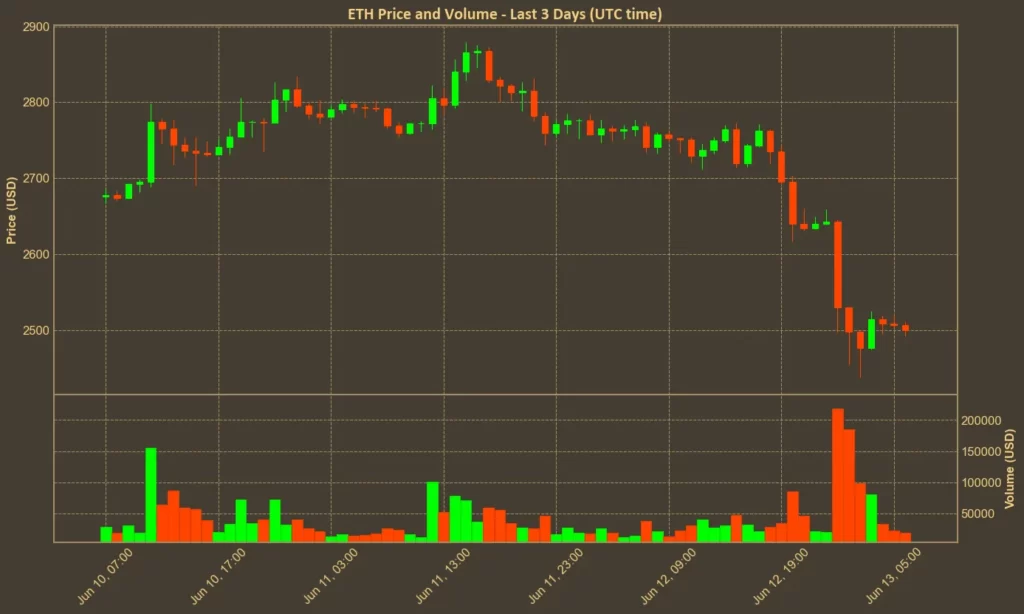Cryptocurrency markets saw sharp declines on Friday following reports that Israel launched airstrikes on Iran, escalating tensions in the Middle East. The development triggered a broad sell-off across risk assets, with digital currencies experiencing notable drops in price and trading volume.
Table of Contents
Sharp Declines Across Major Coins
Bitcoin, which was trading around $109,000 earlier this week, fell to approximately $104,000, marking a daily loss of over 3%. Ethereum lost more than 9%, retreating to just above $2,500 after briefly pushing through the $2,800 resistance level earlier in the week.

Solana fell by nearly 10% and dropped below $145 despite the ETF developments. XRP declined by over 6%. Many other top-100 coins showed similar movements. Weekly charts show some of these coins remain positive, but the sharp daily losses have significantly cut into recent gains.
Memecoins saw some of the largest declines. Fartcoin, FLOKI, Bonk, PEPE, SPX6900, Dogwifhat (WIF) and others lost more than 10% in 24 hours. According to data from Coinglass, over $1 billion in long positions across all cryptocurrencies were liquidated during the same period.
Broader Market Impact
The drop in crypto prices occurred alongside declines in U.S. equity futures. The S&P 500, Dow Jones, and Nasdaq futures all dropped between 1.2% and 1.7% overnight. Oil surged on concerns about potential disruptions to energy supplies, particularly given Iran’s role as one of the largest producers in OPEC+.
Israel’s airspace remains closed, and Iran has suspended operations at Tehran’s main airport. Regional air traffic has been significantly affected, with multiple countries adjusting flight paths. There is no confirmed timeline for when normal air travel will resume.
Will Crypto Recover?
In the short term, the crypto price movements are likely to remain sensitive to further geopolitical developments. However it’s important to remember that there are no technical problems or negative developments within crypto itself.
The drop is a response to escalating geopolitical tension, not anything blockchain-related. Moreover, this is not the first time that tensions between Israel and Iran have coincided with sudden drops in crypto markets. In previous incidents, for example the April 2024 missile strike by Iran on Tel Aviv, cryptocurrencies also declined sharply in the immediate aftermath.
Market analysts describe this as a “risk-off” move, where investors reduce exposure to volatile assets. Crypto, being one of the more liquid and speculative markets, tends to be affected quickly during such periods, mainly because it’s trading 24/7 and is always available.
The current situation may lead to short-term volatility, but it does not change the longer-term outlook for the sector. Developments such as spot ETF approvals, growing institutional participation, and clearer regulatory frameworks remain in progress and continue to support the long-term case for digital assets.




